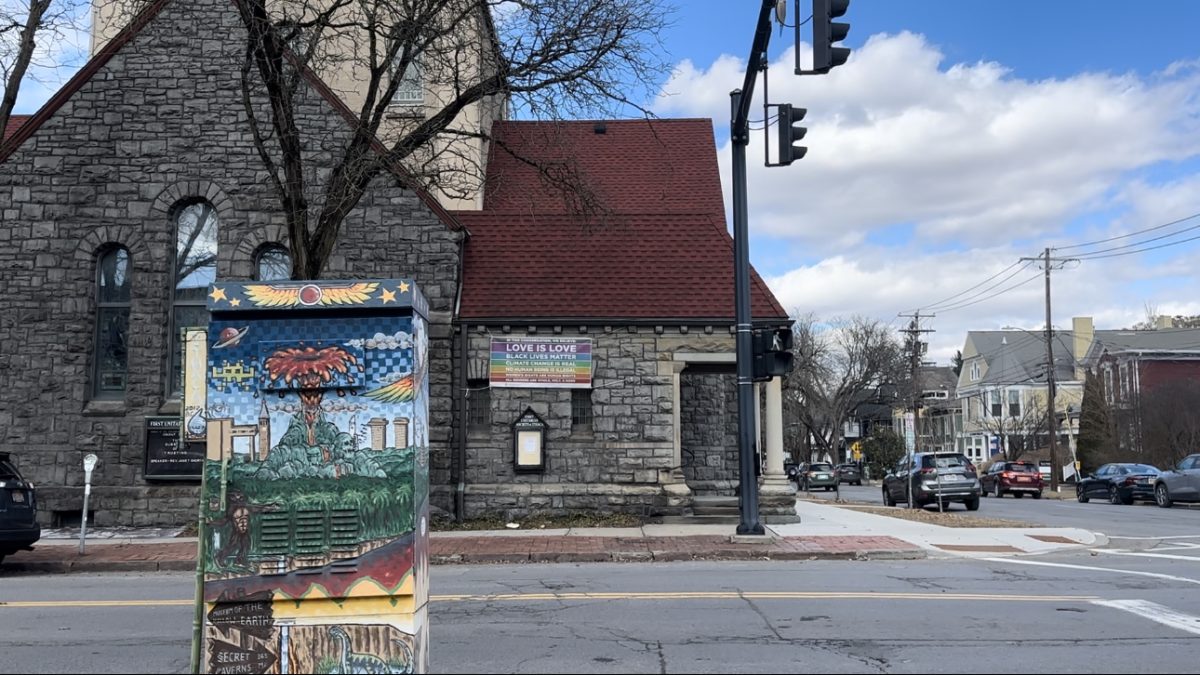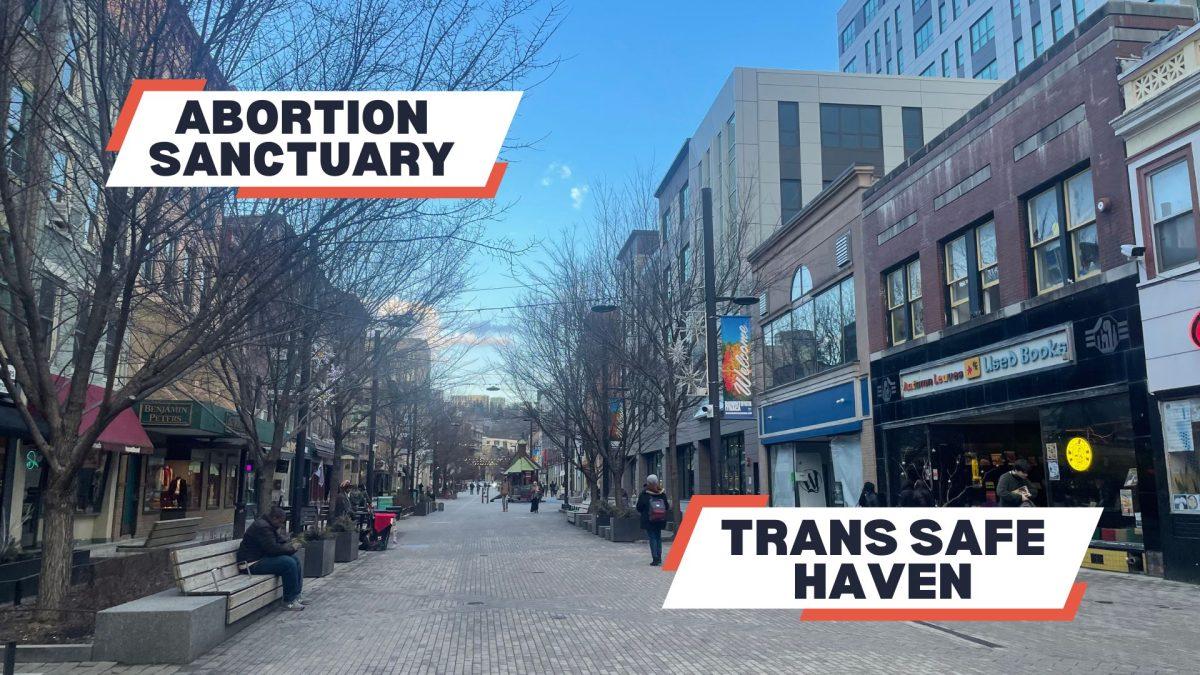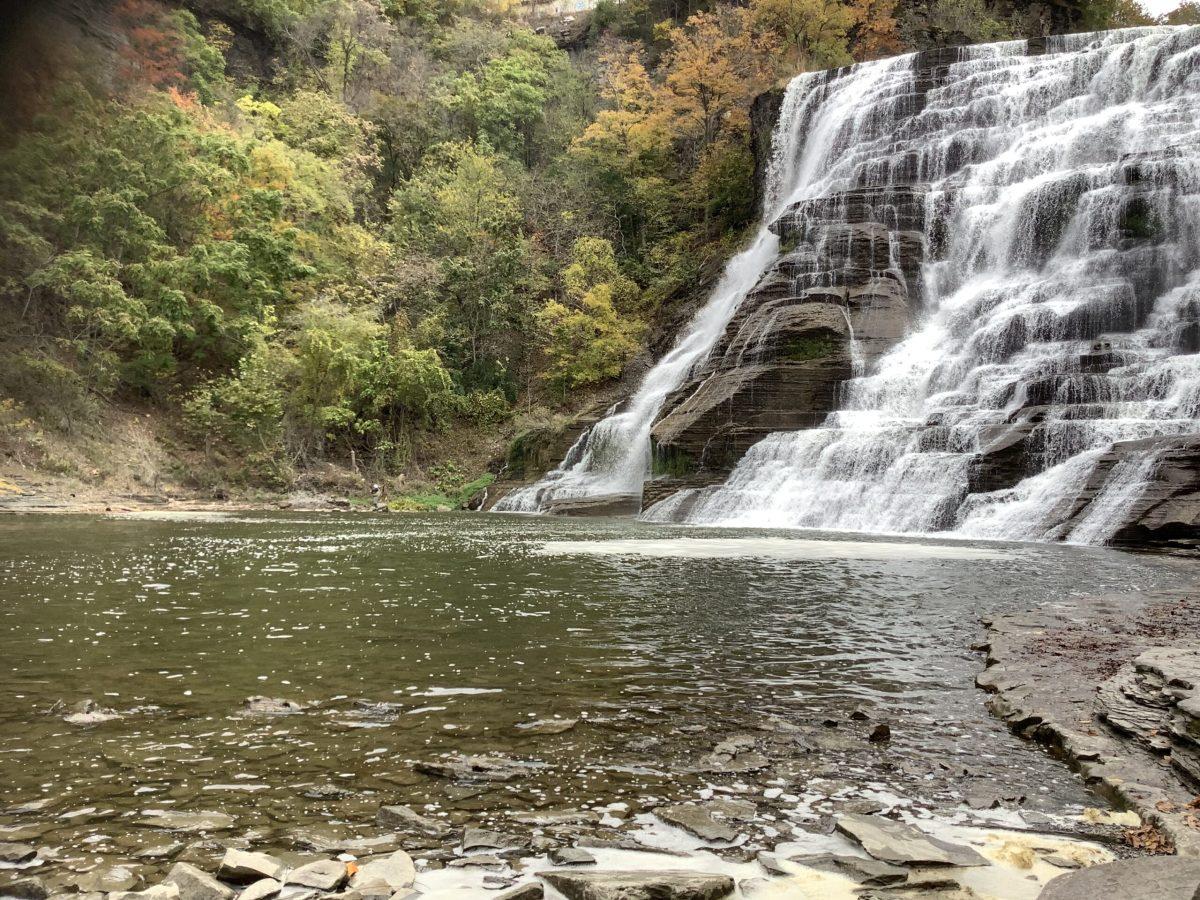- Students say news coverage of natural disasters in region for minimized impact expected prior to storm, instead focusing more on ‘domestic’ concerns for Florida.
- News coverage of Mexico, Caribbean nations and especially Puerto Rico during Hurricane’s Maria and Irma highlighted ignorance of Puerto Rico’s role in U.S., in some people’s eyes.
Alexzandria Sanchez’s leg is shaking nervously. She’s waiting for another phone call from her grandmother, or her mother, or her father. They’ve all been calling her insistently throughout the day. They’re all worried.
It’s Wednesday, September 20 and Sanchez has been running from class to class, taking phone calls in the hallway and trying to stay focus on and calm in between it all, but she she’s finding it difficult to. Her grandfather is in Puerto Rico, Hurricane Maria is about to make landfall and the only news she’s getting about the island is from him.
“I was very disappointed in the way that the hurricanes and the earthquakes were covered because it seemed to only focus what was happening closer to home than on other people who are actually American citizens, which we seem to forget,” she said.
In the buildup to Hurricane Maria, the second hurricane barreling towards Puerto Rico following Hurricane Irma, Sanchez is becoming frustrated by the lack of news coverage and attention being given to her home.
She said that headlines such as: “Hurricane Irma Hits Caribbean, Heads Toward Florida”, “Hurricane Irma ravages Caribbean as Florida nervously awaits historic storms wrath” don’t’ tell her anything she wants to hear and they don’t tell her anything new.
“There would be articles that would say that ‘Puerto Rico was hit but storms will be coming up the east coast.” I couldn’t find one article that focused solely on one issue for one place,” said Sanchez.
She said she was scrounging for information that was relevant to her and her family, but the information was so sparse and spread out, it was barely anything at all.
Andre Rojas, a student from Puerto Rico studying at Ithaca College, said he had taken to Facebook to try to find news about his home. Rojas said that he believes the news’ impact on the level of interest of people is underestimated and that it has a huge impact on further coverage and relief efforts afterwards.
“When the media isn’t covering much of [one place as they do another], people don’t pay much attention to it because they don’t think it’s that important,” said Rojas.
While he’s been on the mainland or “stateside,” Rojas said that he’s encountered people who ask him uneducated questions. They sometimes ask him how he got his green card and others are completely unaware of Puerto Rico’s status as a U.S. territory. The media’s decision to discuss Puerto Rico as a foreign body and not a part of the U.S. has had repercussions, said Rojas.
Following Hurricane Irma, Donald Trump said that Florida would receive 100 percent of U.S. support to recover. The same was not done for Puerto Rico. Trump has been criticized for, instead, taking to Twitter to ignite debate about the definition of patriotism in reference to several NFL team players. He also commended Texas and Florida on their relief efforts and blasted Puerto Rico on its struggle to recover and history of bankruptcy.
Three and a half million people live on the island of Puerto Rico, 60,000 of whom were left without power by Hurricane Irma before the second storm, Hurricane Maria, struck the island. As a result of the storm, the death toll reached 16, according to AP, with numbers expected to rise. Ten deaths occurred in Florida.
Days later, following criticism from both the left and right side of party lines, the president said he would expand efforts to aid Puerto Rico. According to Reuters, the Republican administration had at that point been sluggish in its response and relief efforts for the island in the eyes of Democrats and residents in Puerto Rico, more sluggish than if the disaster had occurred on the U.S. mainland.
Texas & Florida are doing great but Puerto Rico, which was already suffering from broken infrastructure & massive debt, is in deep trouble..
— Donald J. Trump (@realDonaldTrump) September 26, 2017
…It’s old electrical grid, which was in terrible shape, was devastated. Much of the Island was destroyed, with billions of dollars….
— Donald J. Trump (@realDonaldTrump) September 26, 2017
…owed to Wall Street and the banks which, sadly, must be dealt with. Food, water and medical are top priorities – and doing well. #FEMA
— Donald J. Trump (@realDonaldTrump) September 26, 2017
Rojas said it’s the double-standard displayed by Americans on the mainland and vocalized in the series of tweets from the president that validate the hesitation in debate among Puerto Ricans as to whether they should petition for state-hood.
“[Lack of knowledge about Puerto Rico] shames Puerto Rico in a way because some people want to become a state and some people don’t,” said Rojas. “Then it becomes that if the U.S. doesn’t cover [our events], for us it’s like they don’t even care enough to want us to become a state.”
Sanchez heard back from her grandfather days following the second storm but not all of her family members in Puerto Rico are accounted for. Nearly half of all non-Puerto Rican Americans (46 percent) “don’t realize that what happened in Puerto Rico is a domestic disaster, not a foreign one,” reports the New York Times.
A journalist’s job is to inform and educate, said Sanchez, a journalism student herself.
“Journalism is supposed to be about people. When an article is written that are only focused on a certain kind of people or people we think are important, then what is the point…,” said Sanchez. “If we only want to report on things that are directly affecting us that’s not giving a voice to the voiceless.”













